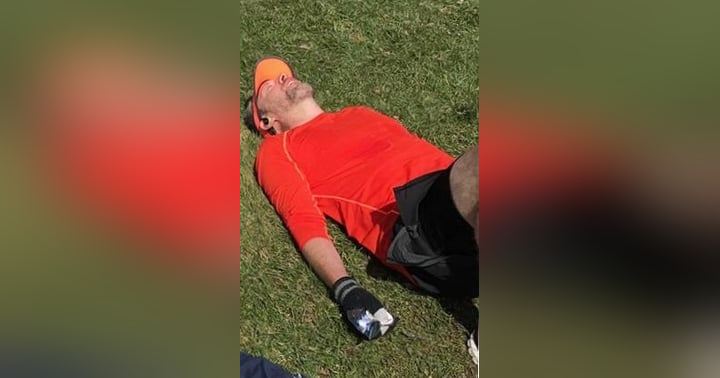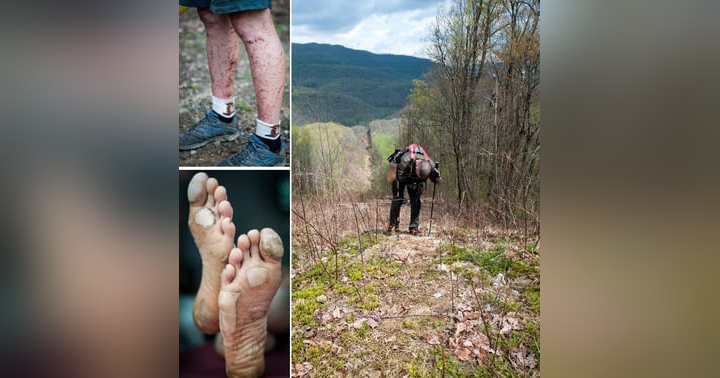Ultra Marathon Etiquette

Participating in an ultra marathon is an incredible journey that requires physical endurance, mental resilience, and a sense of camaraderie with fellow runners. Whether you’re a seasoned pro or a first-time ultra runner, understanding race etiquette is important for ensuring a positive experience for runners, race organizers, and volunteers. Here are the essential do’s and don’ts to guide you during your next ultra adventure.
The Do’s
- Respect the Trail - Many ultra marathons are held in environmentally sensitive areas, so all runners must do their best to leave no trace of their presence. This includes staying on trails to preserve the neutral environment and avoid damaging a fragile ecosystem. Make sure that all your garbage comes back out of the trail with you, and if you happen to find some trash from another runner along the way, pick it up. Keeping the trails pristine is the best way to ensure they stay open and enjoyable for years to come.
- Yield the Trail When Necessary - If someone is moving faster than you and needs to pass, step aside and let them by when it can be done safely. It’s customary to announce your approach politely by saying “On your left” or “Coming up behind you.” Try to warn other runners as you approach from a distance, rather than startling them by speaking when you are right behind them. If you are going uphill and other runners are coming downhill, the downhill runners always have the right of way, as they have momentum carrying them down the hill
- Communicate Clearly - If you are passing or stopping, let other runners know your intentions beforehand. A simple “Stopping for water” or “Stepping off the trail” helps prevent accidents and confusion, especially when runners are closely bunched together at the start of a race. Clear communication also applies when you encounter other trail users as well, such as walkers, hikers, or cyclists.
- Support Fellow Runners - For most back-of-the-pack runners, ultras are often as much (or more) about the community as they are about competition. Encourage others with kind words, or offer to help a fellow runner if you see someone struggling. Sharing a spare gel or water, or grouping up and getting through a tough section together can make a huge difference to a runner experiencing a rough day.
- Follow Race Rules - Pay attention to pre-race briefings and adhere to the specific guidelines set out by the race director. These rules are in place to ensure the safety and enjoyment of not just the runners, but also the volunteeres. If a rule seems unclear, ask questions before the race starts.
- Be Courteous to Volunteers - Aid station volunteers are the unsung heroes of ultramarathon events. Without them, many races simply couldn’t be held. Thank them for their time and effort and be patient if you get to an aid station that is busy. A smile or some kind words go a long way to show your appreciation. If you haven’t volunteered for a race before, it is a great way to be involved in the running community, without all the training and hard work that goes into racing an event.
- Know Your Gear - Make sure you are familiar and comfortable with your gear before race day. Being familiar with your equipment minimizes the chances that you’ll need assistance during the event. Don’t wait until race day to try out some new running gear, train with it beforehand so you are confident in your ability to run with it. For example, if you live somewhere flat and are running a mountain race, don’t wait until race day to start using poles. Train with them in the lead-up to the race so you can get the most benefit from them on race day.
- Plan for Self-Sufficiency - Depending on the event, aid stations may be very close together or spread miles and miles apart. Always carry enough food, water, and gear to manage any unforeseen challenges. Weather conditions, course reroutes, or personal mishaps can require you to rely on your own gear and supplies.
The Don’ts
- Don’t Litter - Leaving garbage on the trail is a major no-no, as it can end up leading to environmental damage, and even make wildlife sick if they try to eat it. Even if it’s accidental, be vigilant about keeping all your wrappers, gels, and any other garbage secured in your pack until you come across a place to dispose of it. Many races have strict penalties for littering, so keep the trails clean.
- Don’t Be a Trail Hog - Running side-by-side with other runners can prevent people from passing. Be mindful of your position, especially on narrow or technical sections of the trail. If you are running as a group, consider running in a single file when space : becomes limited.
- Headphones - Some races have rules against wearing headphones on the course, but even if they don’t, having both ears covered and blasting music isn’t very safe. You won’t be able to hear other runners around you, which can be dangerous for you and them. You also won’t be able to hear any wildlife that may be close by. If you are wearing headphones, keep one ear open, or wear bone-induction headphones, which still allow you to hear everything happening around you.
- Don’t Ignore Cutoff Times - Cutoff times exist for safety reasons, so pushing past them can strain race resources, as well as endanger yourself and others. Volunteers generally sign up for specific times to work at aid stations, and staying out past cutoffs means they will have to stay at their aid stations even longer. If you’re close to missing a cutoff, communicate with race officials, rather than just proceeding on your own.
- Don’t Overcrowd Aid Stations - When you arrive at an aid station, grab what you need and move out of the way quickly. Lingering for too long can create a backlog for other runners. Be as efficient as you can at aid stations, and allow volunteers to help get you in and out as quickly as possible.
- Don’t Be Overly Competitive - Ultramarathons are as much about the journey as they are about the destination. Aggressive behavior or unsportsmanlike conduct can ruin the experience for other runners, and even volunteers. Focus on running your race, and let others run theirs.
- Don’t Rely Solely on Others - While it is great to help and be helped, carry your own essentials and know how to navigate the course by yourself. Relying too heavily on others can be a burden, and can ruin your day if they aren’t able to assist you in the capacity that you thought they would. Be prepared to do it on your own; then, any assistance you receive is a bonus.
- Don’t Take Unnecessary Risks - Avoid pushing beyond your limits in ways or places that may compromise your safety or the safety of those who may have to come to your rescue. If you’re feeling unwell, assess your condition honestly and seek help at the next aid station.
- Bluetooth Speakers - No matter where you go these days, you’ll likely find someone blasting their music out loud through a Bluetooth speaker. While there is a time and a place for loud music, the trail isn’t one of them. Most runners go out into nature to enjoy the peace, so ruining that solitude for everyone around you is frowned upon by most runners (as well as other trail users.)
By practicing good trail etiquette, you help contribute to a positive atmosphere where runners of most abilities can thrive. The trail is a shared space - treat it, and those around you, with respect. When in doubt, think of how your actions may affect others and the environment you are in. Ultramarathons are a celebration of human endurance, nature, and community, so help make the experience the best it can be for everyone involved.








